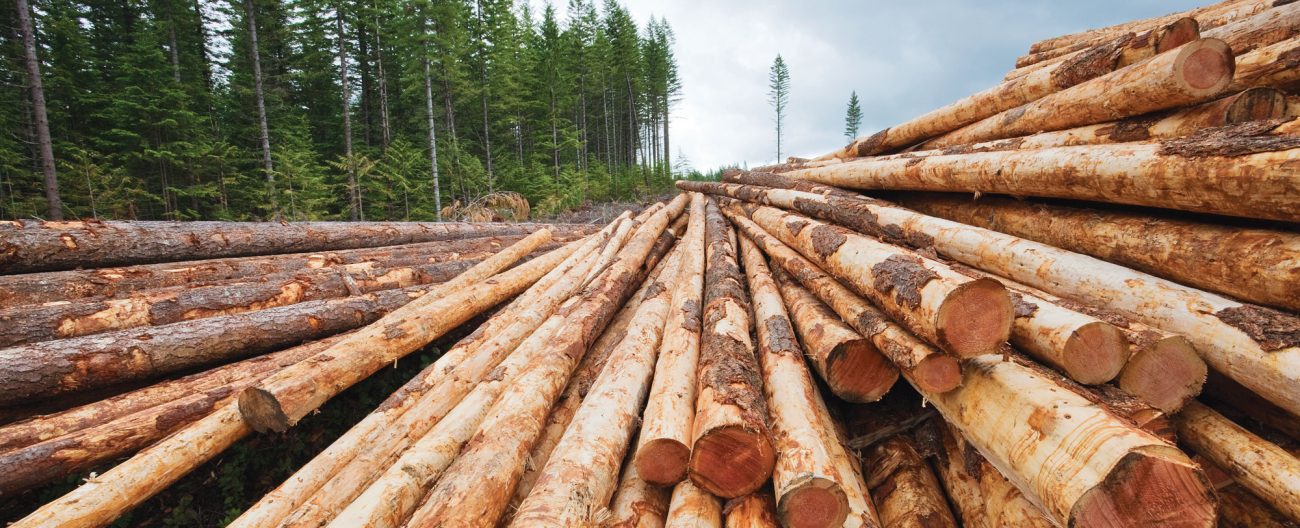Other Sectors
The following are examples of Vancouver's many internationally competitive sectors
Social Enterprise
Increasingly, Vancouver is growing its reputation as a major global hub for social purpose businesses, ideas and innovations. A broad, dynamic sector that’s experiencing tremendous growth, it’s also a sector still unfamiliar to many, especially since there are as many different missions as there are social enterprises.
Vancouver is a world leader in blending enterprise and social values through various business models. This includes for-profit social purpose businesses, non-profit social enterprises and co-operatives. Canada’s first hybrid business model, the Community Contribution Company, or C3, was launched in BC. The number of social enterprises in Vancouver is rapidly growing and now includes more than 750 social enterprises engaged in addressing local and globally relevant social issues.
Vancouver’s fastest-growing social enterprise subsector is for-profit ventures in environmentally conscious areas. Many are owned and operated by impact-conscious millennials, Vancouver’s next generation of entrepreneurs.
Vancouver is attracting international attention as a social enterprise hub. This recognition is helping draw high-profile events such as TED, which committed to relocating its annual conference to Vancouver, beginning with its 30th anniversary conference in 2014. TED and other organizations relocating here have realised that Vancouver is a place to generate and foster world-changing ideas.
According to the most recent Canadian Social Enterprise Sector Survey, 104 BC social enterprises surveyed generated at least $60 million in revenues, trained 6,250 people, provided services to more than 695,000 community members and provided opportunities for 5,520 volunteers.
Natural Resources
Vancouver has deep ties to the natural resource industries. Some 1,200 mineral exploration companies are located in resource-abundant British Columbia, with approximately 800 headquartered in Vancouver. They include Teck Resources Limited and Goldcorp Inc., two of the world’s largest mining companies. Most mining employment in Vancouver is connected to executive office and mining support services such as geological research, business administration, finance, management, engineering and environmental consulting.
Similarly, two-thirds of the province’s largest forestry companies are headquartered here. BC is one of the world’s largest exporters of wood products, with investment opportunities in mills, forestry operations, value-added wood products and biofuels. Almost 60 per cent of the province’s land base is productive forest land, providing rich, diverse, and abundant wood fibre. The forest industry represents 3 per cent of the province’s GDP, and contributes 150,000 jobs in direct and indirect employment.
A smaller coterie of companies in the oil and gas sector also call Vancouver home, including Royal Dutch Shell plc and Pacific NorthWest LNG which is owned by Petronas, Malaysia’s largest energy company.
Yet today, Vancouver is much more than a place where resource companies locate. Green ideas, creativity and innovators are increasingly helping traditional industries transition to more sustainable business practices, thanks to the city’s reputation as a global leader in environmental technologies and best practices.
Finance
Financial services companies employ approximately 60,000 people in Metro Vancouver. Highly educated, this workforce has relatively low turnover thanks to Vancouver’s much-envied quality of life.
Financial services started here as a critical business support function for mining and forestry. Today, local financial services companies operate in global markets, leveraging and facilitating Vancouver’s position as a global commercial gateway. Shared language and customs with the US are critical assets. So too are strong cultural ties to emerging Asian economies.
BC was the first foreign government to sell bonds into China’s domestic market, and in 2015 Vancouver became a Reminbi (RMB) clearance centre.
Vancouver performs particularly well in four financial services subsectors: banking, credit unions, international financial transactions and venture capital investment. All five of Canada’s largest banks have significant operations in Vancouver; several international banks also have offices here, including the Canadian headquarters of London’s HSBC — one of the world’s largest banks.
Cooperative banking is a cornerstone of Vancouver’s banking system, and includes such known and respected institutions as Vancity and Coast Capital Savings. The credit union system in BC is the largest among Canada’s English-speaking provinces.
Vancouver is also developing an important niche in international treasury and financial functions, including factoring, import/export financing, foreign exchange and back-office support.
A robust, diversified economy and very favourable tax environment make Vancouver’s financial services sector highly competitive.
Life Sciences
In BC, the life sciences industry includes approximately 310 companies involved in biopharmaceuticals, medical devices, bioproducts and bioenergy, and the greater life sciences. The sector employs over 11,000 people, generating more than $800 million per year in revenues and with a total estimated impact of $14 billion on the province’s GDP. The industry has proven especially successful in translating commercially promising health research into new treatments that are improving patient outcomes and saving lives.
Metro Vancouver is home to about 70 per cent of British Columbia’s life sciences industry — and highly regarded as a centre of excellence in biopharmaceuticals. Vancouver’s UBC–Broadway Corridor is fast becoming a world-class life sciences cluster thanks to a growing concentration of industry facilities.
In Metro Vancouver, world-renowned research is being conducted in four specific life sciences areas: oncology research; infectious diseases, including a focus on HIV, SARS and prions; neuroscience research; and regenerative medicine.
The industry includes a strong complement of established and next-generation firms such as STEMCELL Technologies and Amgen’s BC-based subsidiary.
Vancouver’s competitive advantage is found in a talented and multilingual workforce, government investments and high-quality university and research and development (R&D) programs — a mix that also includes researchers, research chairs, multidisciplinary research centres and more than 100 research agreements with major global pharmaceutical companies.
The sector has attracted billions in research funding and continues attracting new investments for product development. Vancouver’s location — within easy reach of life sciences collaborators and venture capital sources in Washington State and California — is another undisputed advantage.
Specialty Apparel
Vancouver has a young and thriving apparel industry with a growing list of homegrown brands internationally recognized as global leaders for their design, technological innovation and sustainability. More than 200 apparel companies have design operations in Vancouver, earning nearly $2 billion in revenue in 2013.
The industry ranges from a complement of established firms with global reach, to a group of emerging firms and startups with a more local focus. Companies such as Lululemon Athletica Inc. (yogawear) and Arc’teryx Equipment Inc. (performance outerwear) are recognized as global benchmarks, while John Fluevog Shoes has been called one of the world’s top-10 most innovative fashion companies and 21st-century custom suit-maker Indochino Apparel is making big waves in the fashion world. Though womenswear is the largest category, featuring industry leaders such as Aritizia, Herschel, Oak+Fort and d a c e, Vancouver is best known internationally as a leader in performance and sustainable apparel.
With nature’s outdoors only steps away, the perfect grounds for research and product development, the city’s apparel industry has leveraged regional expertise in technological and environmental innovation to create a global hub for performance apparel and eco-fashion. Beyond attracting the top creative minds with its active lifestyle and cosmopolitan outlook, Vancouver’s location is ideally situated for apparel companies seeking access to key US and Asian markets.

Arts and Culture
With a thriving arts and culture scene, Vancouver is muse to world-renowned artists, writers, dancers and musicians, and home to the highest proportion of “creatives” in Canada. The city is known as a community that warmly embraces the arts and culture — not only through its enthusiasm but via direct and ongoing public and private investments.
Vancouverites spent an average of $1,000 per person on arts and culture annually. Overall, British Columbians are most likely in Canada to give to arts and culture.
Attracting new artists and productions is vital to creating Vancouver’s vibrant creative communities, which is why the City of Vancouver and Vancouver Board of Parks and Recreation award a combined $10.1 million each year to non-profit arts and cultural organizations. Among the City’s many granting programs are the Artist Live/Work Studio Award program, the Community & Neighbourhood Arts Development Grant program, the Cultural Infrastructure Program, and the Neighbourhood Matching Fund. According to the Canadian Arts Database, in return for every dollar invested by the City another $16.24 is raised from other sources.
Three important competitive advantages that play a significant role in fostering a culture-rich and vibrant Vancouver are its inspiring venues, diversity of events and more than 100 arts and culture organizations and societies that contribute to this overall success.
Vancouver is a hub for worldwide talent. Just some of the famous names associated with the city and the surrounding area include: Bryan Adams, Neill Blomkamp, Michael Bublé, Kim Cattrall, Hayden Christensen, Douglas Coupland, Michael J. Fox, Grimes, Taylor Kitsch, Naomi Klein, Sarah McLachlan, Carrie-Anne Moss, Molly Parker, Wanting Qu, Carly Rae Jepsen, Ryan Reynolds, and Seth Rogen.



